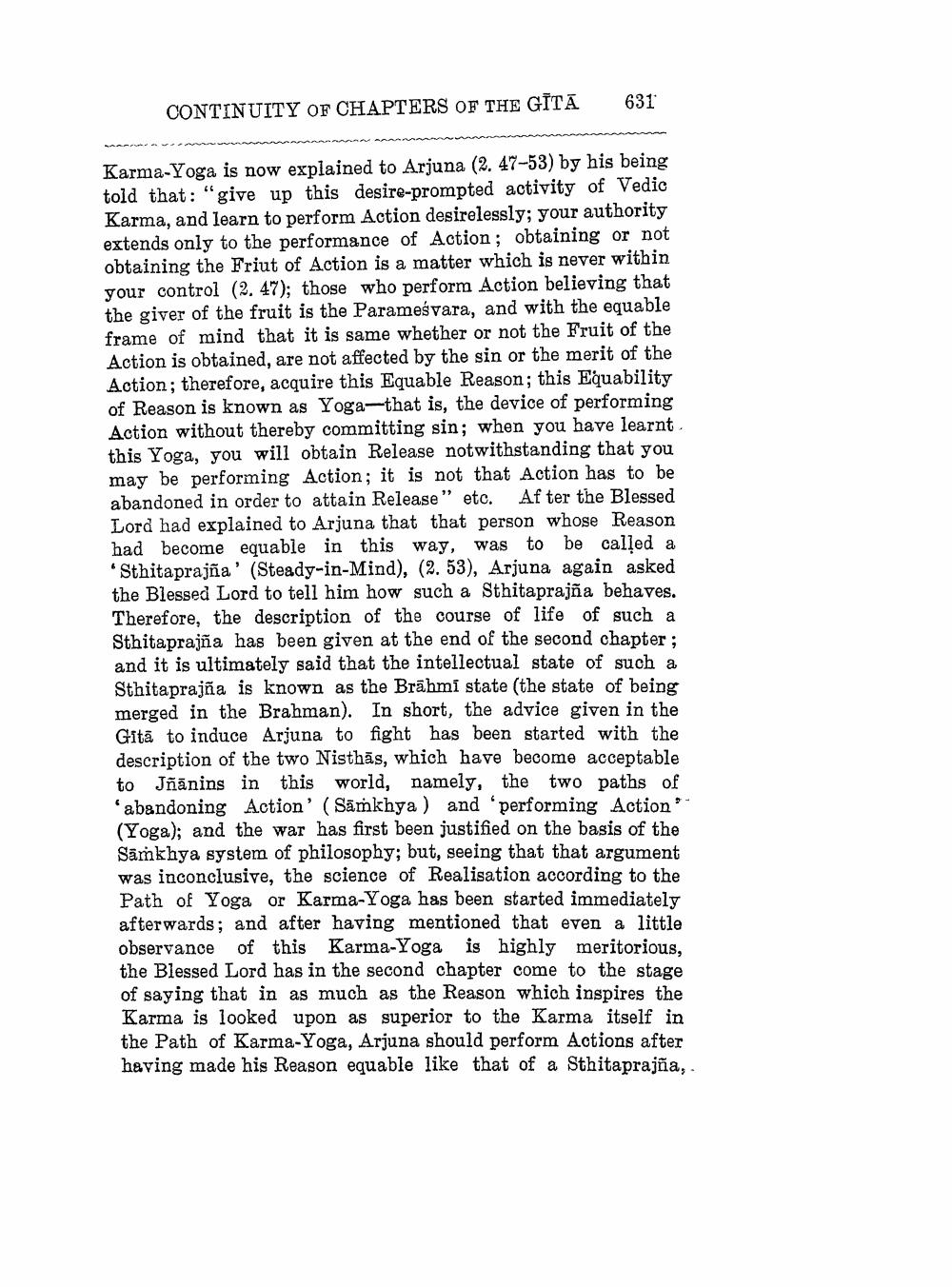________________
CONTINUITY OF CHAPTERS OF THE GITA
631
Karma-Yoga is now explained to Arjuna (2. 47-53) by his being told that: "give up this desire-prompted activity of Vedic Karma, and learn to perform Action desirelessly; your authority extends only to the performance of Action; obtaining or not obtaining the Friut of Action is a matter which is never within your control (2. 47); those who perform Action believing that the giver of the fruit is the Paramesvara, and with the equable frame of mind that it is same whether or not the Fruit of the Action is obtained, are not affected by the sin or the merit of the Action; therefore, acquire this Equable Reason; this Equability of Reason is known as Yoga-that is, the device of performing Action without thereby committing sin; when you have learnt. this Yoga, you will obtain Release notwithstanding that you may be performing Action; it is not that Action has to be abandoned in order to attain Release" etc. Af ter the Blessed Lord had explained to Arjuna that that person whose Reason had become equable in this way, was to be called a 'Sthitaprajña' (Steady-in-Mind), (2. 53), Arjuna again asked the Blessed Lord to tell him how such a Sthitaprajña behaves. Therefore, the description of the course of life of such a Sthitaprajña has been given at the end of the second chapter; and it is ultimately said that the intellectual state of such a Sthitaprajña is known as the Brähmi state (the state of being merged in the Brahman). In short, the advice given in the Gits to induce Arjuna to fight has been started with the description of the two Nisthis, which have become acceptable to Jñānins in this world, namely, the two paths of 'abandoning Action' (Samkhya) and 'performing Action" (Yoga); and the war has first been justified on the basis of the Samkhya system of philosophy; but, seeing that that argument was inconclusive, the science of Realisation according to the Path of Yoga or Karma-Yoga has been started immediately afterwards; and after having mentioned that even a little observance of this Karma-Yoga is highly meritorious, the Blessed Lord has in the second chapter come to the stage of saying that in as much as the Reason which inspires the Karma is looked upon as superior to the Karma itself in the Path of Karma-Yoga, Arjuna should perform Actions after having made his Reason equable like that of a Sthitaprajña,




